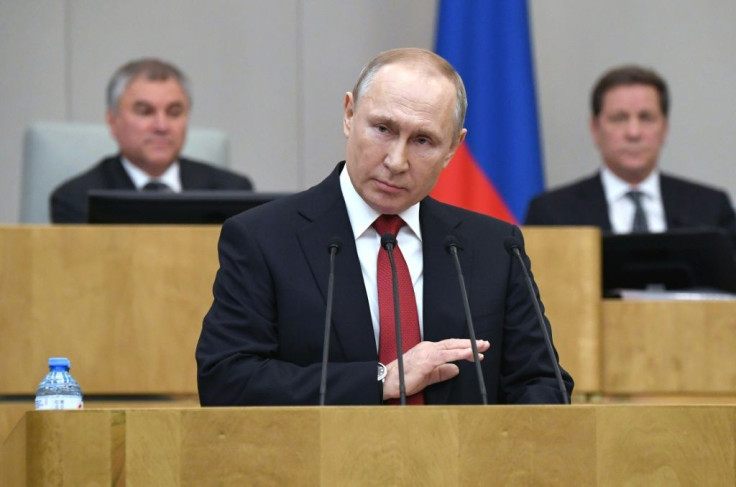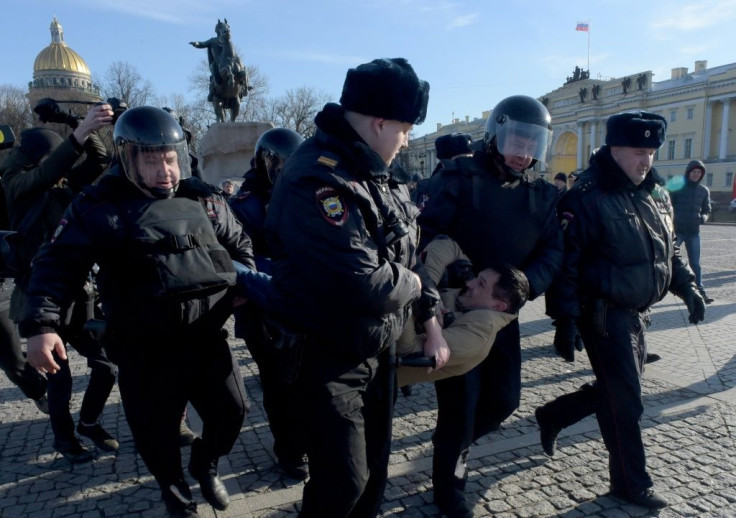Russian Court Backs Putin Presidential 'Reset' Plan

Russia's Constitutional Court on Monday approved a package of amendments including a "reset" of President Vladimir Putin's previous terms, giving him the possibility to rule into 2036.
The approval came just two days after Putin signed the reform bill, which has faced fierce criticism from opposition figures who say it will allow the longtime Russian leader to become "president for life".
The court published the ruling on its website, upholding a wide-ranging package of reforms first proposed by Putin in January and approved last week by Russia's two houses of parliament.
A public vote on the reforms has been scheduled for April 22 but it was unclear whether that might be delayed by the global coronavirus crisis.
Putin first proposed the reforms in January, in a shock to Russia's political establishment that was quickly followed by the resignation of his longtime prime minister Dmitry Medvedev.
The reforms included granting more power to parliament and strengthening the role of the State Council, an advisory body, leading to speculation that Putin -- first elected in 2000 -- could hold on to power in a new role.
Putin repeatedly denied he had any intention of staying on but then last week suddenly backed a last-minute amendment by the first woman in space, Valentina Tereshkova, restarting the clock on previous presidential terms.

His allies rallied behind the move, saying Putin, 67, deserved the chance to run for another six years in 2024, after his current term expires, and again in 2030.
The head of the upper house Federation Council said Putin had "raised Russia from its knees", while others said he was the kind of stable leader Russia needed in turbulent times.
Critics, including chief opposition figure Alexei Navalny, said Putin was securing himself at least another 12 years in power, potentially allowing him to rule longer than Soviet leader Joseph Stalin.
Opposition supporters have demonstrated in recent days in a series of one-person picket protests, the only kind allowed in Russia without previous permission.
More than 18,000 people have signed an online open letter opposing the amendments including lawyers, rights activists and academics. Kremlin spokesman Dmitry Peskov told reporters on Monday that the Kremlin was aware of it.
Opposition leader Alexei Navalny tweeted: "Behind closed doors, a few elderly prostitutes in robes have betrayed the law and the country."
The opposition has called for mass demonstrations against the plan but gatherings of more than 5,000 people are currently banned in Moscow over coronavirus fears.
In line with Putin's strongly conservative views, the reforms also enshrine a mention of Russians' "faith in God" and stipulate that marriage is a union between a man and woman, effectively banning gay marriages.
The amendments ban giving away Russian territory and outlaw calls promoting such a move, as well protecting the "historic truth" about the country's role in World War II.
A number of social reforms are also included, among them a minimum wage that should not be below the subsistence level and state pensions regularly adjusted to inflation.
© Copyright AFP {{Year}}. All rights reserved.





















